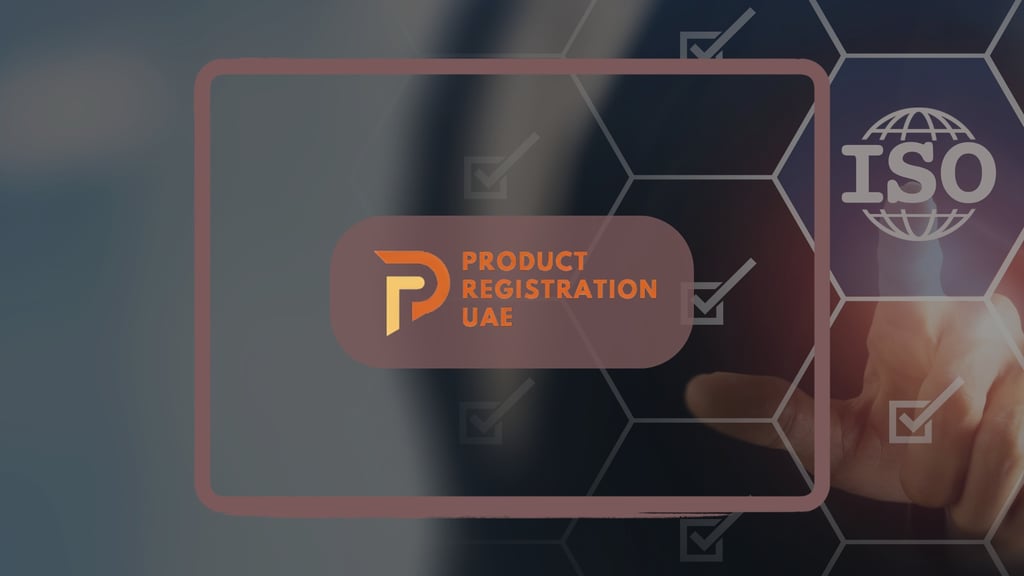Getting Food Sector ISO Certified
Get your food sector ISO certified in the UAE. Learn the steps, benefits, and ways to avoid common pitfalls for faster approval and lasting compliance.
8/8/20253 min read


ISO Certification in UAE’s Food Sector:
Steps, Benefits, and Pitfalls to Avoid
In the UAE’s competitive food industry, safety and quality are non-negotiable.
For manufacturers, distributors, and food service businesses, ISO certification isn’t just a badge of compliance it’s a key to consumer trust, market access, and long-term growth.
But while the benefits are clear, the path to certification can be challenging without the right preparation.
This guide explores:
The core steps to achieving ISO certification for the food sector in the UAE
The business benefits of being certified
Common pitfalls that cause delays or rejections—and how to avoid them
Understanding ISO Certification in the UAE Food Industry
ISO (International Organization for Standardization) standards set globally recognized benchmarks for safety, quality, and operational efficiency.
In the UAE food sector, two ISO standards stand out:
ISO 22000 – Focused on food safety management systems.
ISO 9001 – Focused on quality management systems.
These standards align with UAE’s regulatory framework and complement local approvals from authorities such as ESMA, Dubai Municipality, and Abu Dhabi Agriculture and Food Safety Authority.
Step-by-Step: How to Achieve ISO Certification in the UAE Food Sector
1. Identify the Relevant ISO Standard
Choosing between ISO 22000, ISO 9001, or integrating both depends on your product type, market goals, and regulatory requirements.
2. Conduct a Gap Analysis
Compare your current processes against ISO requirements. This step reveals compliance gaps that must be closed before certification.
3. Implement Required Processes
This may involve:
Updating food safety procedures
Training staff on hazard control measures
Revising documentation for traceability
4. Internal Audit
Before the certification body’s audit, conduct an internal review to ensure all systems are functioning and documentation is accurate.
5. Select an Accredited Certification Body
Choose a body recognized by UAE authorities to ensure international and local acceptance.
6. Certification Audit
The certification body will evaluate compliance through site visits, document reviews, and process inspections.
7. Ongoing Compliance and Renewal
ISO certification is not a one-time achievement—continuous monitoring and periodic audits are required.
Business Benefits of ISO Certification in the UAE Food Sector
Market Access – Many UAE tenders and international buyers require ISO-certified suppliers.
Regulatory Alignment – Reduces risk of non-compliance with UAE food safety laws.
Consumer Trust – Certification reassures customers that products meet global standards.
Operational Efficiency – Standardized processes reduce waste, improve consistency, and increase profitability.
Export Advantage – Smooths entry into GCC and global markets where ISO is recognized.
Common Pitfalls and How to Avoid Them
1. Incomplete Documentation
Failure to maintain accurate records of food safety controls can lead to rejection.
2. Ignoring Local Requirements
ISO alone is not enough—UAE-specific requirements (Arabic labeling, ECAS, Halal) must also be met.
3. Poor Staff Training
Even with systems in place, untrained staff can cause non-compliance during audits.
4. Choosing the Wrong Certification Body
A body not recognized locally can result in certification being rejected by UAE authorities.
The Role of Expert Support
Partnering with experienced regulatory consultants can:
Help identify the right ISO standard for your business
Close compliance gaps quickly
Manage documentation and training
Liaise with both ISO auditors and UAE regulatory bodies
FAQs About ISO Certification in UAE’s Food Industry
Is ISO certification mandatory for all UAE food businesses?
No, but it is often a requirement for tenders, exports, and premium market positioning.
How long does ISO certification take?
Depending on readiness, it can take from a few weeks to several months.
Can I use the same ISO certification for multiple sites?
Only if all sites are included in the certification scope and audited.
What’s the difference between ISO 22000 and HACCP?
HACCP focuses on hazard analysis, while ISO 22000 covers a full food safety management system including HACCP principles.
Get Certified with Confidence
ISO certification in the UAE food sector is more than a compliance exercise, it’s a strategic investment.
Our team helps businesses prepare, apply, and maintain certification without delays.
Use the chatbot in the bottom right corner or contact our team to get started.
Recommended Reads
ISO 22000 Certification in the UAE Food Industry for complete safety and compliance assurance.
ISO 9001 Certification in the UAE to boost quality management and operational efficiency.
Learn how ISO 14001 Certification in the UAE can strengthen your market reputation.
Explore halal certification for cosmetics in the UAE to avoid ingredient pitfalls and speed approvals.


